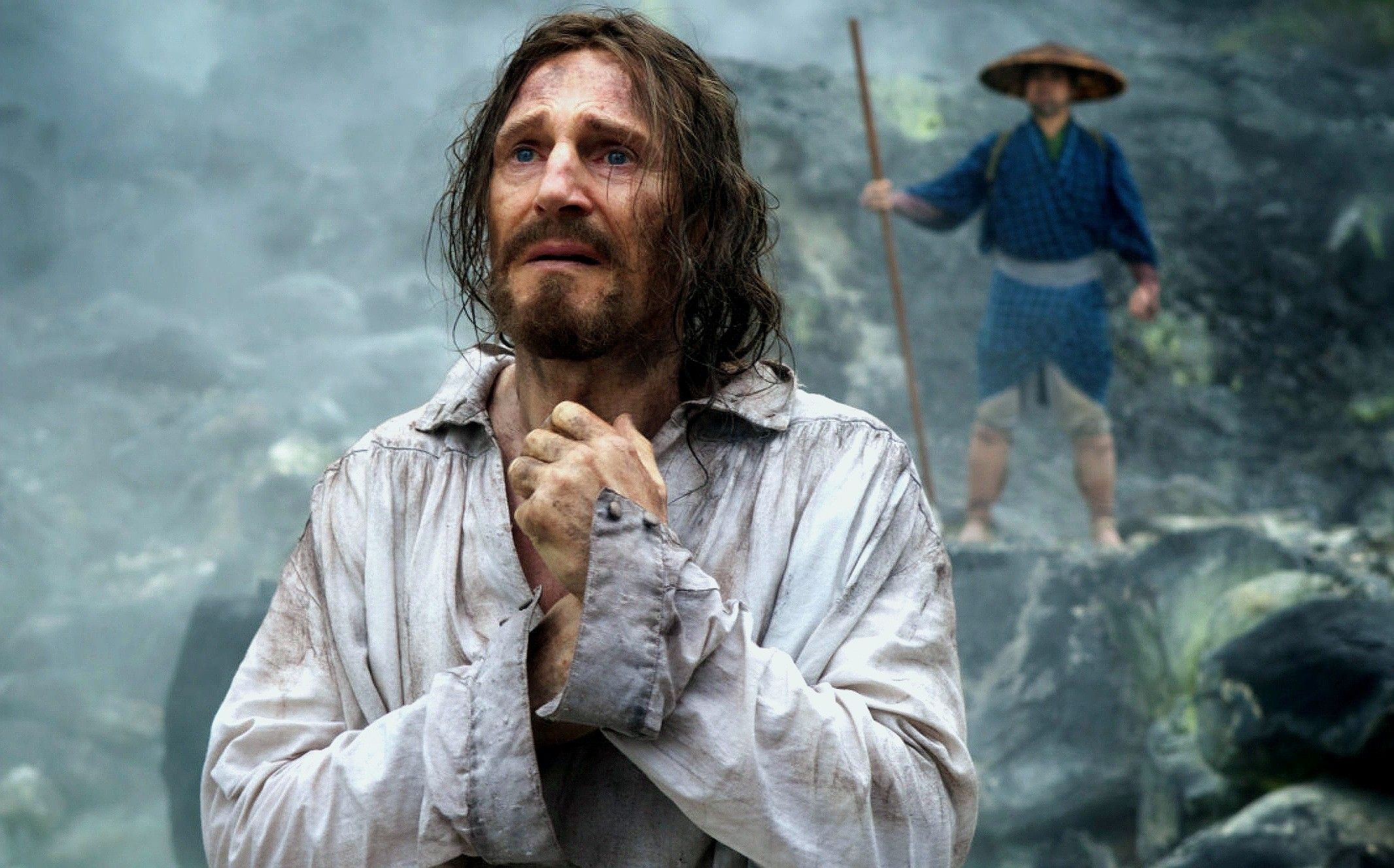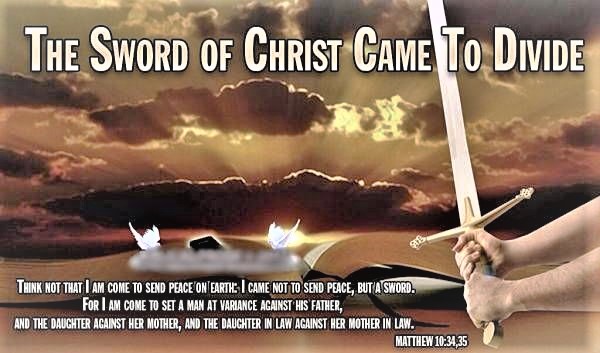“SILENCE” MOVIE PROMOTES CATHOLIC CONTEMPLATIVE SPIRITUALITY & SANCTIONS APOSTASY, BUT GETS BACKING BY “CHRISTIAN” GROUPS
antithetical to true faith.

BY CEDRIC .H. FISHER
SEE: http://www.truthkeepers.com/?p=1368;
republished below in full unedited for informational, educational, and research purposes:
“Silence” is the latest movie by Martin Scorsese, who also produced
“The Last Temptation of Christ.” I have read several reviews by
professing Christians who are recommending it without reservations.
Additionally, the Dove Foundation awarded the movie 4 out of 5 doves.
Charisma News asks, “Is Martin Scorsese’s ‘Silence’ Prophetic?” CBN also
presented a rave review. Christianity Today entitled its review,
“Scorsese’s ‘Silence’ Asks What It Really Costs to Follow Jesus.”
Another review in CT is entitled, “Silence Review: Hollywood’s Gift
To The Church That Might Just Save Your Faith.” And what is the message
of “Silence” that might save your life? The message of the movie is
antithetical to true faith.
The title of Lumindeo’s review of the movie is, “Silence—A Christian’s Contemplative Guide.” [1]
In the “About” section of the Lumindeo website it is described as “a
network created by and for passionate followers of Jesus Christ.” If
Lumindeo consists of passionate followers of Jesus Christ, why don’t
they know that Christianity never grew in apostasy, but always in
persecution and martyrdom?
Crosswalk likewise implies that it is a Christian-themed film with
the statement, “Theologians, look no further: this movie is jam-packed
with spiritual themes.” [2]
Spiritual themes, perhaps, but Christian themes? Not by any stretch.
Crosswalk reveals a misunderstanding of true Christianity in the
following statement.
“The Christians in the film are Jesuit Catholics…”
The truth is that “Silence” is not a Christian film. It was not
produced by a demonstrable Christian and has nothing to do with biblical
Christianity. National Catholic Reporter declares the movie as,
“Scorsese’s ‘Silence’ is his most Catholic film.”[3] I agree with that assessment. “Silence” is Roman Catholicism presented as true Christianity.
The major theme in “Silence” is about renouncing Christ when
threatened by martyrdom. In fact, the apostate Father Ferreira urges the
Jesuit Rodrigues to apostatize by insisting, “If Christ were here He
would have acted. Apostatized. For their sake. Christ would certainly
have done at least that to help men.”
In fact, Rodrigues is overtly presented as a “Christ” in the film and
the people worshipped him. When he apostatized, it was to the people as
if Christ had apostatized.
Furthermore, Ferreira’s statement is a heretical interpretation of
Christ’s mission. Christ declared that He came to die for our sins. His
sacrifice was to deliver us from the penalty of sin, death, and to
provide for us eternal life. If we deny Him before men, He will deny us
before the Father. (Matthew 10:33)
Rodrigues hears a supernatural voice, presumably Christ, who tells
him to apostatize. The voice says, “Come ahead now. It’s all right. Step
on Me. I understand your pain. I was born into this world to share
men’s pain. I carried this cross for your pain. Step.”
Rodrigues obeys the voice, steps on the fumie, and goes on to
denounce Christianity. That iniquitous deed was followed by an apparent
conversion to Buddhism. (Thomas Merton, the priest who introduced
Contemplative Spirituality, also called The Silence, into Roman
Catholicism, likewise became a Buddhist-sympathizing Catholic.)
The supernatural voice presented an extra-biblical revelation, which
is actually heresy. God’s word declares that trampling on Christ is
egregious and punishable by God.
“Of how much worse punishment, do you suppose, will he be thought
worthy who has trampled the Son of God underfoot, counted the blood of
the covenant by which he was sanctified a common thing, and insulted the
Spirit of grace?” – Hebrews 10:29
Additionally, Christ did not come to “share men’s pain,” but to bear
our sin and pay the penalty for it. Trampling on Christ is despising His
sacrifice and rejecting His grace. Christ declared that no one can be
His disciple unless they take up their cross and follow Him. A cross is
to die on. “Silence” violates everything Christ taught about
discipleship.
“For whoever desires to save his life will lose it, but whoever loses his life for My sake will find it.” – Matthew 16:25
In my opinion, the blood of the martyrs will cry out against Martin
Scorsese and everyone involved in this film on the Day of Judgment.
“Silence” is also a spiritually seductive lure into Contemplative
Spirituality. Throughout the movie there are poignant references to
God’s silence. Rodrigues prays, but God does not answer. At one point he
declares, “Despair is the greatest sin, but in the mystery of Your
silence, it crowds my heart.”
In another scene Rodrigues ponders silently, “Lord, I feel the weight
of their fate. Those who have died. Those who will die. Like the weight
of Your silence.”
Makoto Fujimura, the cultural and special adviser to Scorsese during
the film, stated, “…the film is not about the silence of God, but God’s
voice in silence.”
Near the end of the movie the supernatural voice is heard again and declares, “I suffered beside you. I was never silent.”
Rodrigues, now a Buddhist, replies, “It was in the silence that I
heard your voice.” In my opinion it is an unadulterated suggestion that
as a Buddhist he heard Christ in The Silence. He never heard Christ as
a professing Christian until right before he stepped on the fumie.
Scorsese said at the screening of Silence, “My way into spirituality happens to be Roman Catholicism.” Of
course, Roman Catholic spirituality is “the Silence” or contemplative
spirituality. Consider Scorsese’s understanding of Christianity in his
response to the following question. “The Last Temptation of Christ’ and
‘Silence’ — in your art and mind where do these two films find each
other?”
“… But for myself, as a believer, unbeliever, doubter, have
faith, not have faith, go through life, making mistakes, I don’t know.
“Because when [Fr. Rodrigues] does apostatize, he gives
up anything he’s proud of and he’s got nothing left except service,
except compassion. So, he gives up his religion, he gives up his faith
in order to gain his faith. Wow. How do you do that? That’s amazing.
Could you do that?” – Martin Scorsese
I would answer Scorsese with an emphatic “No, you cannot give up
faith to gain faith.” However, he goes on and produces the movie with
the theme of abandoning faith to gain faith. Scorsese portrays the
“service and compassion” of the apostate Jesuit as refined and elevated.
The clear message is that committing apostasy and converting to
Buddhism to avoid martyrdom is spiritually superior to
faithful-unto-death Christianity. How does that compare to the martyrs
in Revelation?
“And they overcame him by the blood of the Lamb and by the word of
their testimony, and they did not love their lives to the death.” –
Revelation 12:11
In summation, “Silence” is nearly 3 hours of very powerful emotional
manipulation. The movie presents such a horrendously evil view of the
Japanese Inquisitor that the Jesuit Rodrigues appears saintly by
comparison. However, the idea of authentic Christian Jesuits is as
oxymoronic as the concept of biblically validated Roman Catholicism. I
believe the only good value of the movie is that it reveals the complete
failure of Roman Catholicism when the religion masquerades as
Christianity.
The dangers of the movie are first its heterodoxy that one can
apostatize to avoid martyrdom and remain a child of God. An equal danger
is the obvious allure of Contemplative Spirituality. This diabolical
movie may prepare innumerable anemic professing Christians to compromise
their faith under the pressure of persecution. However, it may also be a
vehicle to carrying them into mystical experimentation with
Contemplative Spirituality.
The potential of “Silence” to deceive millions of weak professing
Christians is feasible. Could this be part of the “lying signs and
wonders show” that the Apostle Paul referred to in 2 Thessalonians?
“The coming of the lawless one is according to the working of Satan, with all power, signs, and lying wonders, and
with all unrighteous deception among those who perish, because they did
not receive the love of the truth, that they might be saved.” – 2
Thessalonians 2:9-10
[1] http://www.lumindeo.org/uncategorized/silence-christians-contemplative-guide/
[2] http://www.crosswalk.com/culture/movies/silence-movie-review.html
[3] https://www.ncronline.org/blogs/ncr-today/scorseses-silence-his-most-catholic-film
_________________________________________________________
